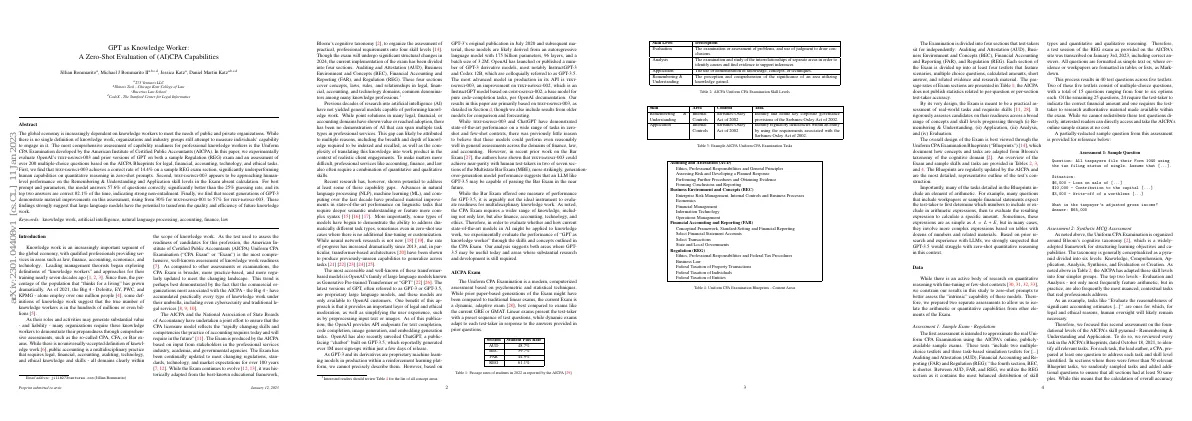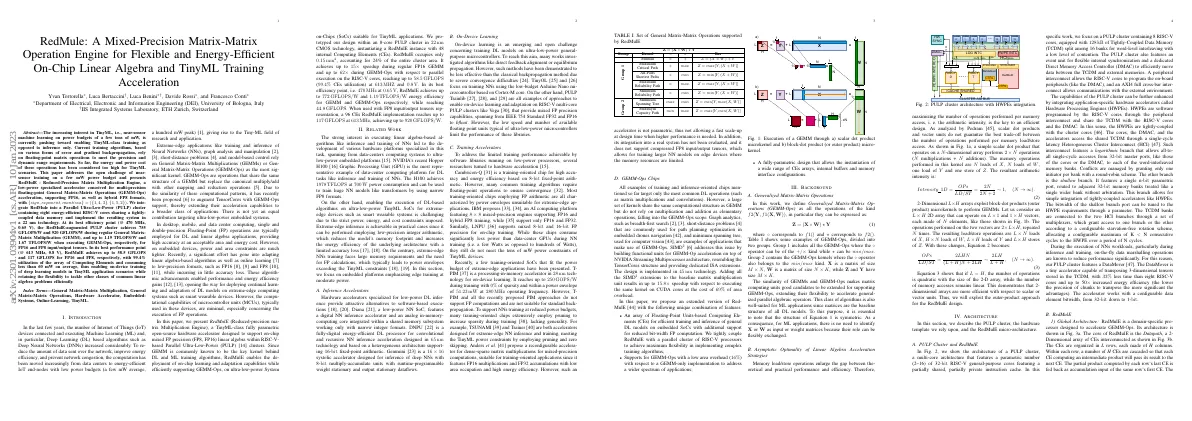
GPT as Knowledge Worker: A Zero-Shot Evaluation of (AI)CPA Capabilities
Link to paper The full paper is available here. You can also find the paper on PapersWithCode here. Abstract Global economy is increasingly dependent on knowledge workers AICPA developed Uniform CPA Examination to measure capability readiness for knowledge workers OpenAI’s text-davinci-003 and prior versions of GPT evaluated on sample Regulation exam and assessment of multiple-choice questions text-davinci-003 achieves 14.4% correct rate on sample REG exam section, underperforming human capabilities text-davinci-003 approaching human-level performance on Remembering & Understanding and Application skill levels Recent generations of GPT-3 demonstrate material improvements, rising from 30% to 57% Paper Content Introduction Knowledge work is an important part of the global economy Leading management theorists have studied knowledge workers for nearly seven decades Hundreds of millions to billions of people are considered knowledge workers Organizations require knowledge workers to demonstrate their preparedness through assessments Public accounting is a multidisciplinary practice that requires legal, financial, accounting, auditing, technology, and ethical knowledge and skills The CPA Exam is the most comprehensive assessment of knowledge work readiness The CPA Exam is divided into four sections: Auditing and Attestation, Business Environment and Concepts, Financial Accounting and Reporting, and Regulation AI has not been able to perform knowledge work Recent research has shown potential to address capability gaps GPT-3 has demonstrated state-of-the-art performance on a wide range of tasks GPT-3 was evaluated on the Bar Exam and achieved near-parity with human test-takers GPT-3 was evaluated on the CPA Exam to evaluate its usefulness for knowledge work Analysis suggests areas where GPT-3 may be useful and areas where research is still required Aicpa exam The Uniform CPA Examination is a computerized assessment based on psychometric and statistical techniques....








